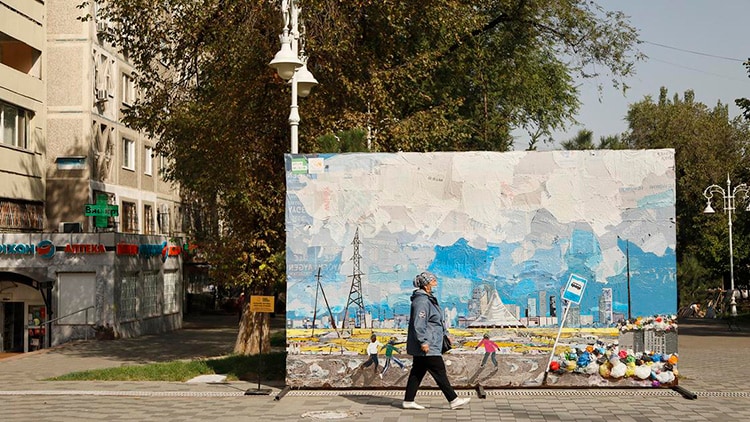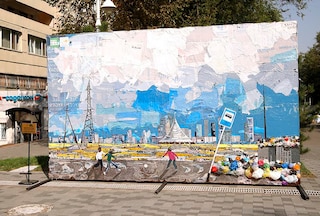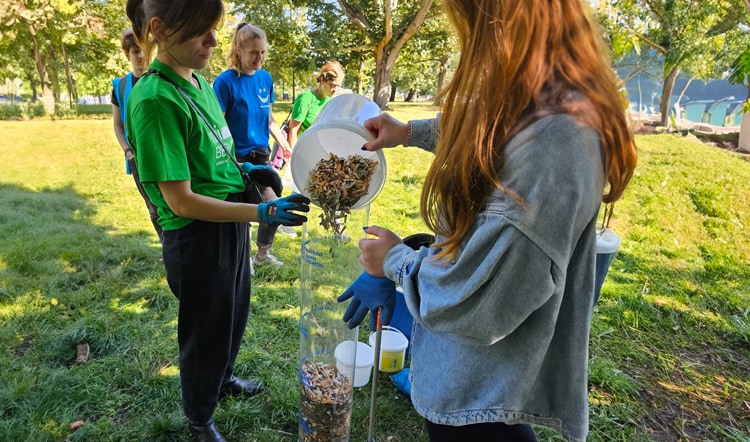It can take just a few weeks to start a habit, but far longer to stop one. This was the dichotomy PM Kazakhstan’s “StopMusor” (“Stop Littering”) campaign sought to address. The goal? To raise awareness of the impacts of post-consumer waste and to inspire citizens to act.
In Kazakhstan, awareness of the littering issue in general and its impact on the environment is low, so the campaign aimed to promote responsible waste management and recycling practices amongst civil society, focusing specifically on the impact of small litter.
In addition, the market also used relevant consumer touchpoints to raise awareness around cigarette butt littering; for example, in 2023, a limited-edition cigarette pack design and campaign was launched to illustrate the effects of cigarette butt littering on the environment, directing legal-aged smokers to an online education platform.
Partnering for success
Such a complex problem cannot only be solved by one organization alone. For this reason, PM Kazakhstan established a strategic partnership with the Association of Ecological Organizations of Kazakhstan.
I believe that protecting the environment is a moral and business imperative. Through strategic partnership with the Association of Ecological Organizations, we are committed to leading by example to drive a positive behavioral change. Together, we can make a difference by taking small steps towards a cleaner, greener future.
This is the largest environmental association in the country, focusing on education, driving positive behavioral change, and achieving harmony between human activities and environmental protection.
An integrated campaign
In 2020, the StopMusor campaign launched in Kazakhstan’s two largest cities, Astana and Almaty. Now in its fourth cycle, it uses an integrated, multi-stakeholder approach of online (social media campaigns, online events, and activations such as the “Eco Hero” competition, and the Trash Tag Challenge) and physical activations (cleanups, eco-talks with local activists, and eco-fairs).
Putting street litter into the frame
Continuing StopMusor’s theme of changing littering behavior, the Association of Environmental Organizations of Kazakhstan organized a collection of used plastic bags among residents and visitors to Astana. More than 6,000 were collected and given to contemporary Kazakh artist Saule Suleimenova. On the streets of the capital, she then created the artwork “Under the sky of Astana” made entirely of these bags attached to a 3x5 meter canvas.
The artwork conveys the idea that garbage can be given a second life. By creating works of art from polyethylene, Saule encourages citizens to think about environmental issues and avoid plastic as much as possible.
It was something of an experience as an artist working outside, as Saule had to battle with the weather—with bags flying around in the wind and rain causing problems with her glue gun. But the end result was a powerful metaphor of the impact of plastic pollution on her country.

Reduce, reuse, recycle—raising awareness of conspicuous consumption
Thanks to the work of PM Kazakhstan and the Association of Ecological Organizations of Kazakhstan, “Darmarka” exchange markets are now being regularly held across Kazakhstan to raise awareness of conscious consumption. Especially popular with students, they help find new owners for items, and thereby contribute to reducing resources used for the production, packaging, and delivery of new goods.
Already established in the cities of Astana, Almaty, Zhezkazgan, Karagandy, and Oskemen, the most popular goods are clothes, books, and children’s toys, while anything that doesn’t find a new owner is donated to charitable organizations and orphanages that can make use of them.
Measuring the success of the campaign
Prior to the program launch, a survey was conducted with residents of Astana and Almaty to establish a baseline of awareness of the issue of littering, particularly its impact on their local environment. After the first cycle of the campaign was completed (almost a year after the launch), a follow-up survey asked the same questions and showed a 15 percent rise in people thinking that human indifference to the environment is the cause of littering, and—most encouragingly—a nine percent rise in people saying they do not litter.
In 2023 alone, more than 20 events and activations were organized, achieving a reach of 200,000 people (including digital activations, physical banners, clean-up events, etc.).
In addition to raising awareness, the campaign inspires citizens to take the vital step from learning to action with the creation of an “eco-map” where they can report littering to local authorities. The initiative proved incredibly successful in 2023 and received more than 350 requests associated with “fly-tipping,” water pollution, and construction waste.



